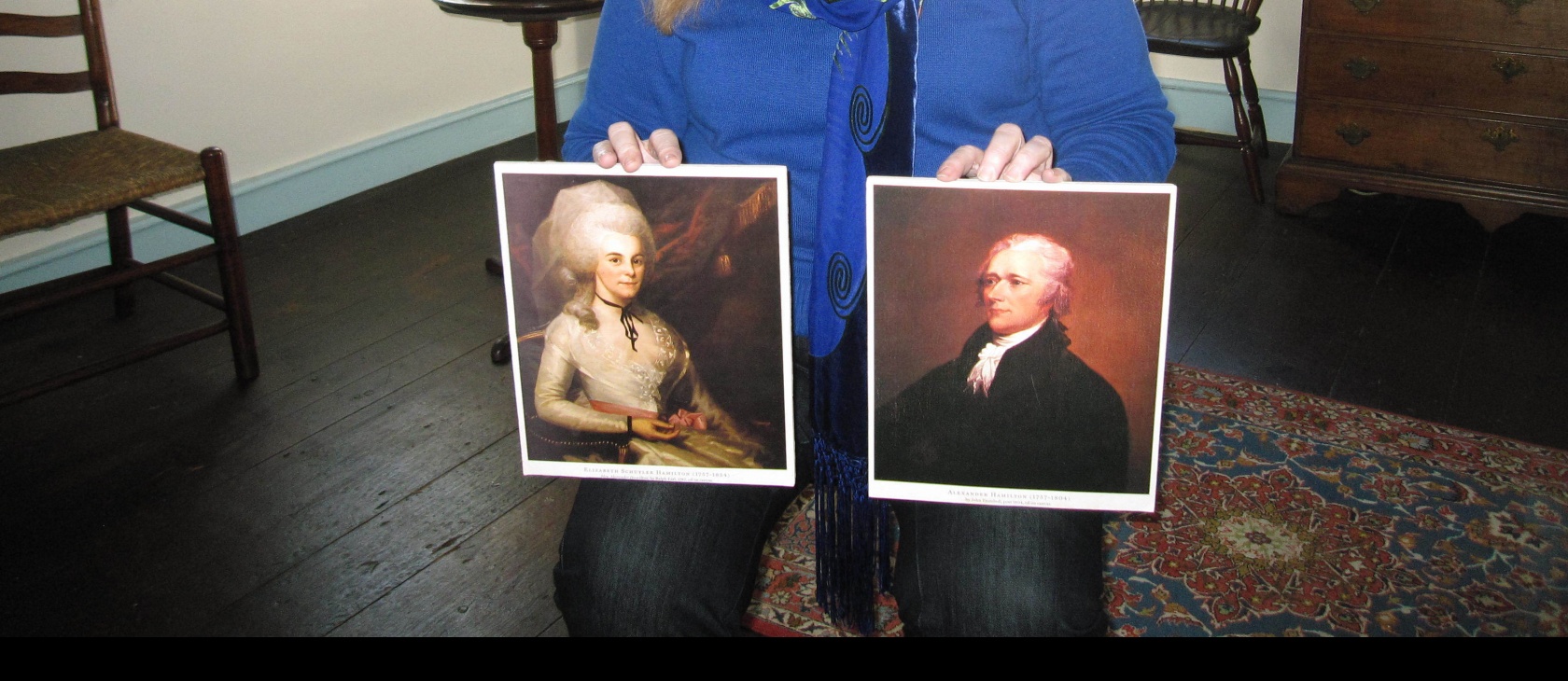I cannot spare myself or others. My Maker has pointed out this duty to me and has given me the ability and inclination to perform it.
Known to most as “Eliza” and to her husband and closest companions as “Betsey,” Elizabeth Schuyler Hamilton is a forgotten founding mother. Eliza is best known as the widow of Alexander Hamilton, despite outliving him by half a century. Her story is hard to piece together as she chose to erase herself from history, all while preserving her fallen husband’s legacy by commissioning Hamilton’s first collection of writings.
Historian Ron Chernow describes her as deeply religious, stoic and averse to self-pity. Eliza was the daughter of General Phillip Schuyler and Catherine Van Rensselaer Schuyler, one of New York City’s blueribbon couples. Eliza was born on August 9, 1757, and was brunette, with dark or even black eyes and an athletic build. Martha Washington once referred to her as “my ideal of a true woman.”
Eliza got to know Alexander Hamilton in the winter of 1780 while they were both in Morristown, New Jersey, and the two were married by the end of year.
Known as “the little saint,” Eliza was extremely devout. She was a member of the Dutch Reformed Church and made religious instruction a priority for her children. Every morning as she prepared breakfast, Eliza would have one of the boys read a chapter from the Bible or from a historical text.
Despite this busyness with her children and her husband’s career, Eliza was devoted to serving others. She also worked with the society for the relief of poor widows with small children. She sat for a portrait in a debtors’ prison, helping the artist get the funds to pay off his debt. In 1818, she won a charter from the state legislature to start the Hamilton Free School. This was the first educational institute in Washington Heights.
Regardless of his many flaws and his unfaithfulness to her, Hamilton had a strong, but imperfect love for Eliza. Part of Hamilton’s final words to her were in a letter he wrote: “Adieu, best of wives and best of women.”
Before turning 50, Eliza had been publicly humiliated by a cheating husband, become a widow, lost both her parents, lost her oldest child to a duel and watched her oldest daughter lose her mind.
On March 16, 1806, Eliza cofounded the New York Orphan Society, the first private orphanage in New York. She served on the board as deputy director and, eventually, director. She spent several decades overseeing every aspect of the orphanage, from raising money and collecting Bibles to personally investigating complaints. She even hired some of the orphans to work for her and helped one make his way to West Point. Such devotion to vulnerable children would not have been surprising to those closest to Eliza. In 1786, she essentially adopted Miss Fanny Antill, the daughter of a Revolutionary War colonel who could not take care of her after his wife died. Eliza took Fanny in, treating her and educating her as if she were her own child. Throughout her life, Eliza continually housed and cared for homeless children and other povertystricken individuals. Ultimately, Eliza married an orphan, adopted an orphan and cofounded an orphanage.
One of the oldest Revolutionary War widows, Elizabeth Schuyler Hamilton died on November 9, 1854, just seven years before the start of the American Civil War. She is buried beside her husband at Trinity Churchyard in New York City.
Hero of Liberty image attribution: Ralph Earl [Public domain], via Wikimedia Commons PD-1923



